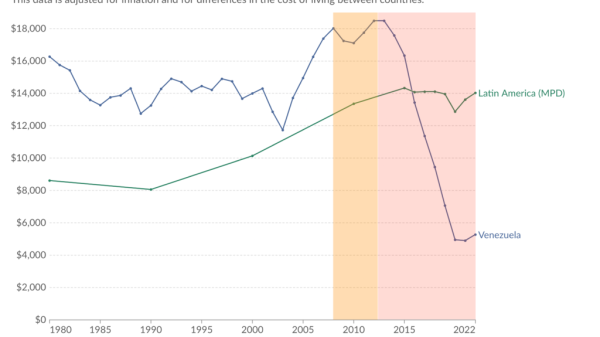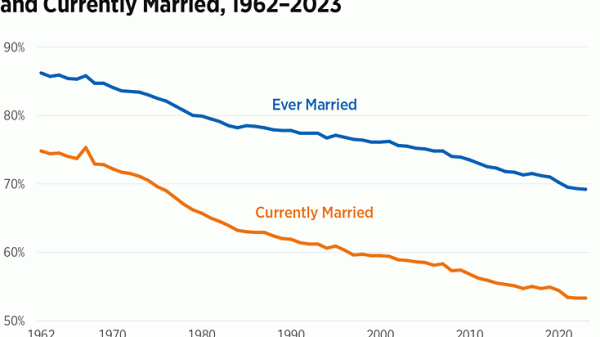Authors rarely get it right the first time. For three decades, Swedish historian and liberal debater Johan Norberg has made the case for liberty and free markets. Internationally, he first made a name for himself in 2001 with In Defense of Global Capitalism, arguing against anti-capitalist, left-wing movements, following the WTO summit in Seattle in 1999.
I first learned to appreciate Norberg’s flowing and impassioned style in a book about liberalism’s history in Sweden, and his early, economic history-focused — and Joel Mokyr-influenced — Swedish-only book När Människan Skapade Världen. When Mokyr won the Nobel this year, Norberg remarked that his secret sauce has unfortunately been revealed to the world: “The only problem with Joel Mokyr winning the Nobel Prize in Economic Sciences is that people will realize where I get all my ideas from.”
The final nail in the coffin that was my youthful socialism was Norberg’s short, obscure, and untranslated book on migration from 2012. In the spirit of a typical open-borders libertarianism, he and his co-author marshaled arguments for why free trade and free association among all the world’s peoples make us better off. That appealed to me strongly and was exactly the intellectual bridge I needed to cross over from the dark red side.
His recent creations have been less inspiring (which I’ve mostly chalked up to the fact that I’m no longer his target audience). His passionate The Capitalist Manifesto from a few years ago was rather dull and same-old, same-old… but presumably there are more people like me in desperate need of hearing the best case for freedom and markets by as astute a writer as Norberg. The most refreshing part of that book was Norberg’s own reflection on how the intellectual landscape has shifted: He used to debate people from the left, whereas now the enemies of globalization and free trade come mostly from the right — and nobody learned the lesson of trade as mutually beneficial.
Open: The Story of Human Progress, released in 2020, was completely swamped by the fervor of that year’s desire to close societies — whether due to fear of diseases, market activities, or dreams of megalomaniac control.
How Civilizations Rise and Fall
With this year’s Peak Human, Norberg got another shot at the story in Open. And he nailed it: This is the book that the COVID-drenched one should have been. His almost metaphysical perspective on societies growing and changing shines through; his painstaking collection of catchy quotes and observations by contemporary voices and historians is golden. Walking us through the rise and fall of seven famous empires — from Athens and Rome to Baghdad and Renaissance Italy and, of course, the Anglosphere takeover from around 1600 — we’re treated to some recurring patterns. Civilizations grow rich from their openness, creativity, and relatively free markets; they consequently fall apart when rulers squeeze too hard, overreach in their military adventures, and abandon the ideals and market liberty that once made them rich.
This is the story of human civilization, seen not over election cycles or decades but generations and centuries. His great strength as an author and intellectual was always weaving together an inspiring, relevant story from a mismash of confusing scholarly records. His great value add isn’t original research (it’s all secondary sources), and instead he pulls together an impressive array of material across history and literature, economics and politics.
Speaking both to a historical audience interested in the fall of civilizations past (thinking about Rome) and the chattering classes of a certain dominant hegemon currently dead-set on tearing itself apart, Norberg points out that outsiders “can’t kill curiosity or creativity. Only we can do that to ourselves.”
America’s history is deeply intertwined with the European civilization whence it came. The European civilizations of Renaissance Italy and the magnificent Dutch first jumped the English Channel and then the Atlantic. They had a curious tendency to project their ideas onto the next one: “Just as Great Britain was the proudest achievement of the Dutch, the United States was the greatest achievement of the British.” Long live the real King?
Perhaps you’ve heard that the dominance of the English-speaking peoples was built on the backs of slaves. While somewhat true, it’s far from the full story or even the most interesting one; compared to every other empire in human history, it’s even trivial. What’s so remarkable about the British empire, and the American one following in its scraps, wasn’t that it had slaves or dealt in the slave trade, but, remarks Norberg, that it stopped — and then used its technologically dominant navy to hunt down others who continued.
Slaves arriving in America in 1619 were par for the course in world history: “It was just one in an until-then seemingly inevitable, endless series of crimes against the inalienable right to self-ownership.” What made the Anglosphere special was Britain’s intellectual and financial innovations and America’s permissionless experimentation. America became more European than the OG Europeans themselves, right down to the political philosophy forever enshrined in the Constitution.
Who Will Build the Roads, Engels?
If you thought this was yet another anti-left tirade by a free marketeer, think again: Both the national right and the woke left, argues Norberg, are “hopelessly unhistorical in their crusades against cultural hotchpotch.” Civilizations, present and past, aren’t “monoliths with inherent traits, but complex, growing things defined by how they engage with, adopt and adapt […] what they find elsewhere.” It’s the connections between humans that make up the civilizations on which they rest. It’s the open-mindedness of embracing another culture’s better knowledge or practices that matters.
One memorable observation in Norberg’s deep dive down the rabbit hole of intellectual history is found in Friedrich Engels, from The Condition of the Working Class in England, no less, where Engels remarked with wonder about the “network of the finest roadways.” Curiously, from the pen of a well-read nineteenth-century socialist as commonly as his twenty-first-century descendant, it was all “the work of private enterprise, the State having done very little in this direction.”
Let’s close with how Norberg opens his introduction, timely enough quoting Mokyr from The Lever of Riches: “A society that has ceased to concern itself with the progress of the past will soon lose belief in its capacity to progress in the future.”
May we once more look up at the sky — or the dusty records of our past civilizations — and wonder about our place in the stars instead of quibbling over our place in the dirt.



























